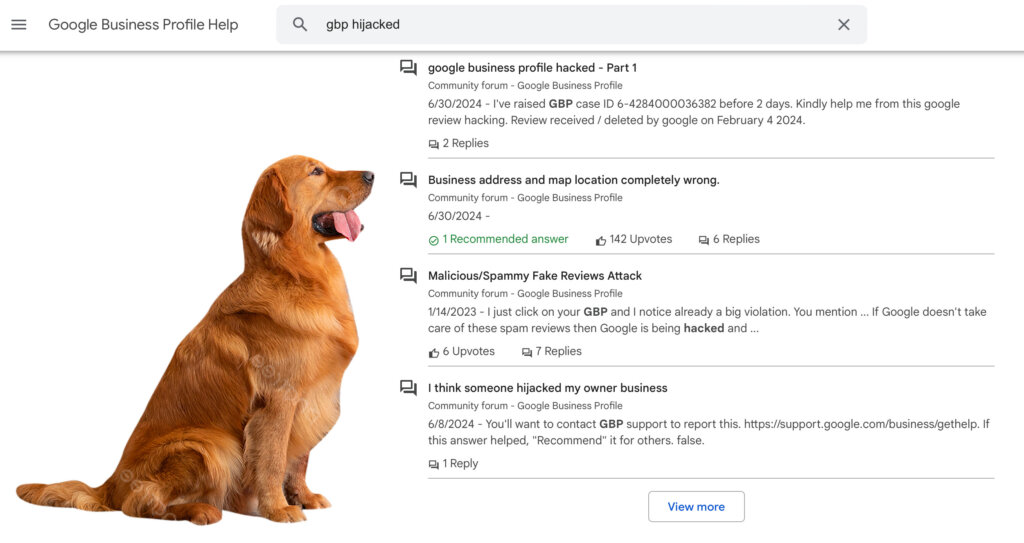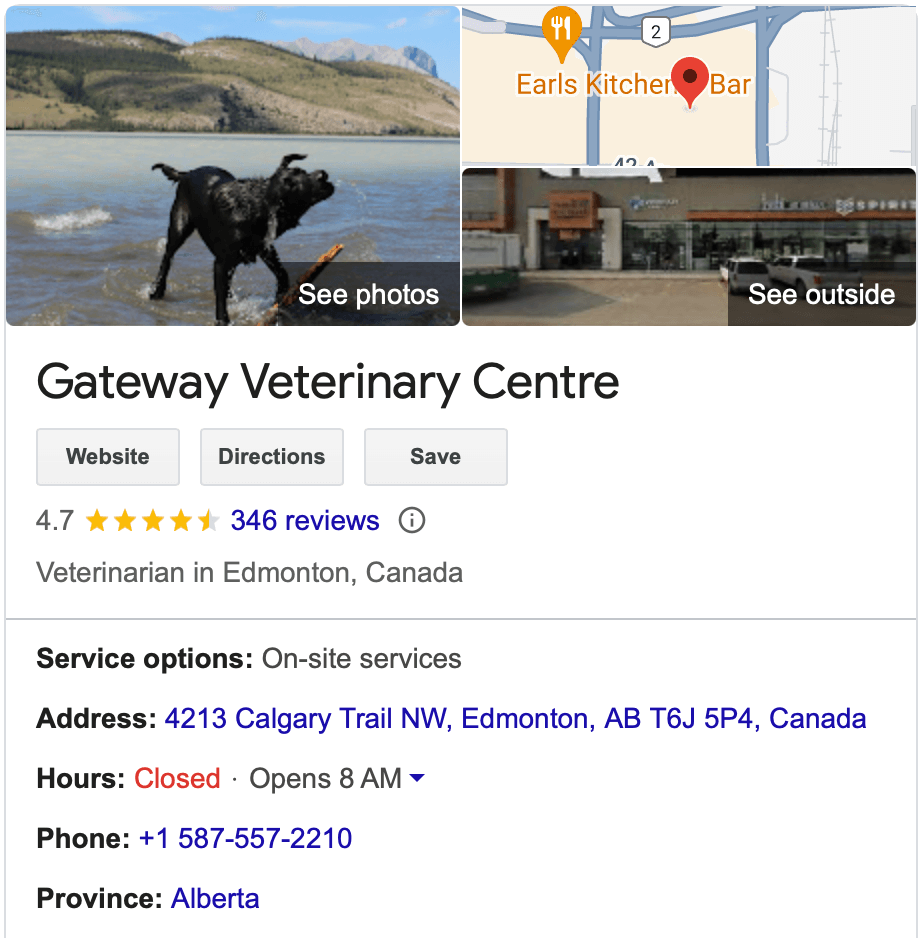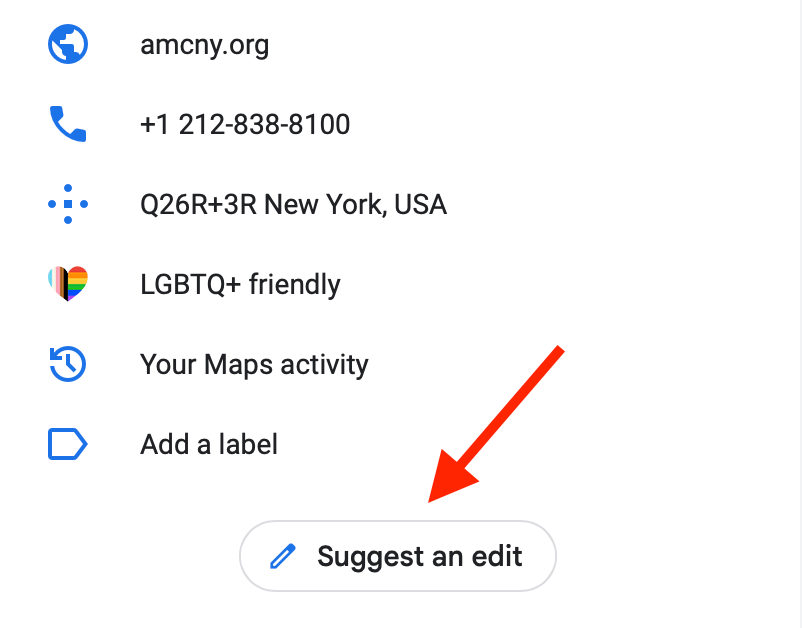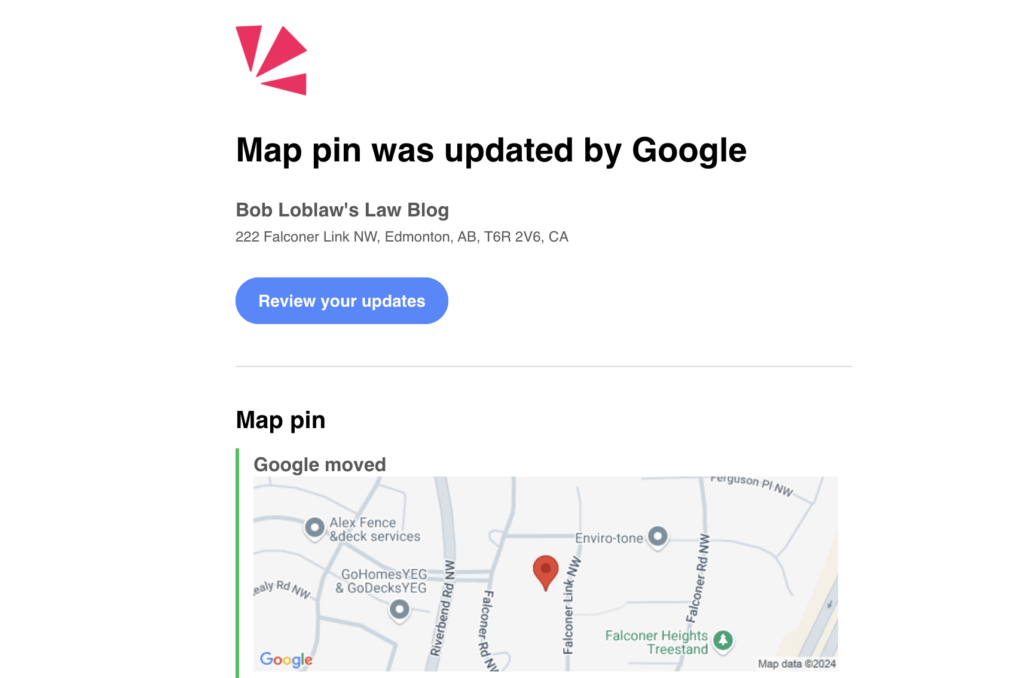🔥 Whitespark's Local Ranking Grids are coming soon! Get notified when we launch
🔥 Whitespark's Local Ranking Grids are coming soon! Get notified when we launch


By the time you’ve gotten your first Google Business Profile verified and it has gone live, you’ve already accomplished so many steps that you may feel like you never want to look at it again… or at least not for a while. I understand, especially now with video verification being such a tiring song and dance, but take heed: an unwatched profile will turn into your local business’ worst liability instead of one of its best assets.
As a local business owner, you’ve got a thousand other tasks calling to you, like taking care of your staff, serving your customers, and working away forever on your marketing strategy. This is why you need to put a trusty watchdog on duty on your Google Business Profile (GBP) so that you can turn your attention elsewhere most of the time.
In today’s column, we’ll look at what can go wrong with unguarded Google Profiles and how to protect your business from troublesome spam attacks.

This is an image of just one Google Business Profile, but four different groups of people see it in four wildly different ways:
You see your GBP as one of your brand’s key digital assets. It’s the main seat of your online reputation and, hopefully, a core source of leads, conversions, and sales.
It’s your publishing vehicle for writing Updates, review responses, and answers to questions, as well as uploading impactful image and video content. You may also have it hooked up to Google Merchant Center for an e-commerce layer of your marketing.
You’re proud of this listing, and the work you put into it can make it feel like it belongs to you. Be wary of that feeling, though, because your listing actually belongs to…
Yes, all GBPs belong to Google and they can edit, suspend, or remove them at any time. Google sees your listing as their asset, useful to them as content in their search engine and mapping products (in which their revenue-generating ads are based).
It’s quite true that they couldn’t have this local business content to fill up their products if brands like yours didn’t exist, but it’s essential to be aware that your GBP doesn’t belong to you. It’s Google’s property, and they consider it to be an open source interface for…
Even though your listing has your name, address, phone number, images, videos, and reviews talking about your business on it, Google views it as open-source media. Like an old school community message board, anyone can walk by and thumbtack a suggestion to your listing that leads to it being edited by Google.

These public edits can be useful, as in the case where the owner of a defunct business has not reported the location as closed and people in the community are being inconvenienced by arriving at shuttered premises. The public can let Google know the business should be marked as closed.
On the flip side, though, the public can also make a mistake, as in the case of someone giving wrong answers to people’s questions in Google’s Q&A feature on your Google Business Profile. Without malicious intent, a random person can tell a neighbor that you do/don’t offer specific products and services, do/don’t have features like ADA access or gender neutral restrooms, or are/aren’t open on particular holidays. A passerby can erroneously determine that your name, address, or phone number are inaccurate on your GBP and report it to Google, because the public has been trained by Google to view your listing as belonging to everyone who uses the internet.
But even this somewhat awkward scenario pales in comparison to how your listing is viewed by…
These bad actors view your GBP as a vehicle for scamming the public and punishing your company. Google’s open source approach to real-world business representation means that your unprincipled competitors can either mess up your listing themselves or hire spurious marketing firms to do so in hopes of gaming their way to the top of the local packs, local finders and Maps.
It also means that anyone with a grudge against you, a staff member, or your business – be that a former employee, an angry customer, or a personal adversary – can attack your GBP out of hostility.
This is why it’s vital to be aware of the following information.
Unlike members of the general public who might make an honest mistake about your business, spammers intentionally manipulate GBPs in all of the following ways:
The list goes on and on, and spammers are continuously seeking new ways to exploit weaknesses in Google’s local products. Unfortunately, it sometimes takes weeks or months for business owners to realize that a drop in foot traffic or phone calls is the result of a spam attack, with enormous profits having drained away in the interval.
Likewise, a secondary scenario of damage can emerge when legitimate customers start leaving negative reviews after encountering fake information about a real business. In a future column, I may even discuss the psychological damage that is being done to real-world local communities whose transformation from trustfullness to suspicion has been exacerbated by the internet turning towns and cities into digital spam targets. But for now, the overriding takeaway is that your Google Business Profile can’t be left unguarded.
You’ve got countless other things to do besides sitting glued to your screen watching to see if someone is maliciously or erroneously editing your GBPs. On that latter note, today’s column wouldn’t be complete without mentioning that sometimes troublesome edits accidentally get made to your listings by your own staff!
If access to your GBP has been given to several people at your company or to marketers you’ve hired, weird changes can be made because someone misunderstood something. These can go undetected for weeks or months until you suddenly realize that an in-house blunder has caused your primary category to be changed, your hours to be incorrect, or that some other troublesome error has occurred.
In short, what you need is a set of alerts that ensure that you know when changes are happening to your GBP, and I have listed here some useful tools:

You’ll still want to regularly look at your listings, but tools lighten the load. They can make the difference between staying awake at night worrying about prowlers and knowing that Fido will start barking if anything is amiss. Just a small set of useful resources like the one I’ve shared gives you the peace of mind that you’ll know as quickly as possible when major changes occur, so that you can actively respond to minimize damage.
This active approach to GBP management is critical for two reasons:
More trustworthy local results are good for everybody (except spammers!). Keep checking back with Whitespark as we continue to roll out new features for listings management that help you make the most of your online local business marketing opportunities.
And if you want a watchdog for your or your clients’ GBPs, Local Platform might be the tool for you!
Miriam Ellis is a local SEO columnist and consultant. She has been cited as one of the top five most prolific women writers in the SEO industry. Miriam is also an award-winning fine artist and her work can be seen at MiriamEllis.com.